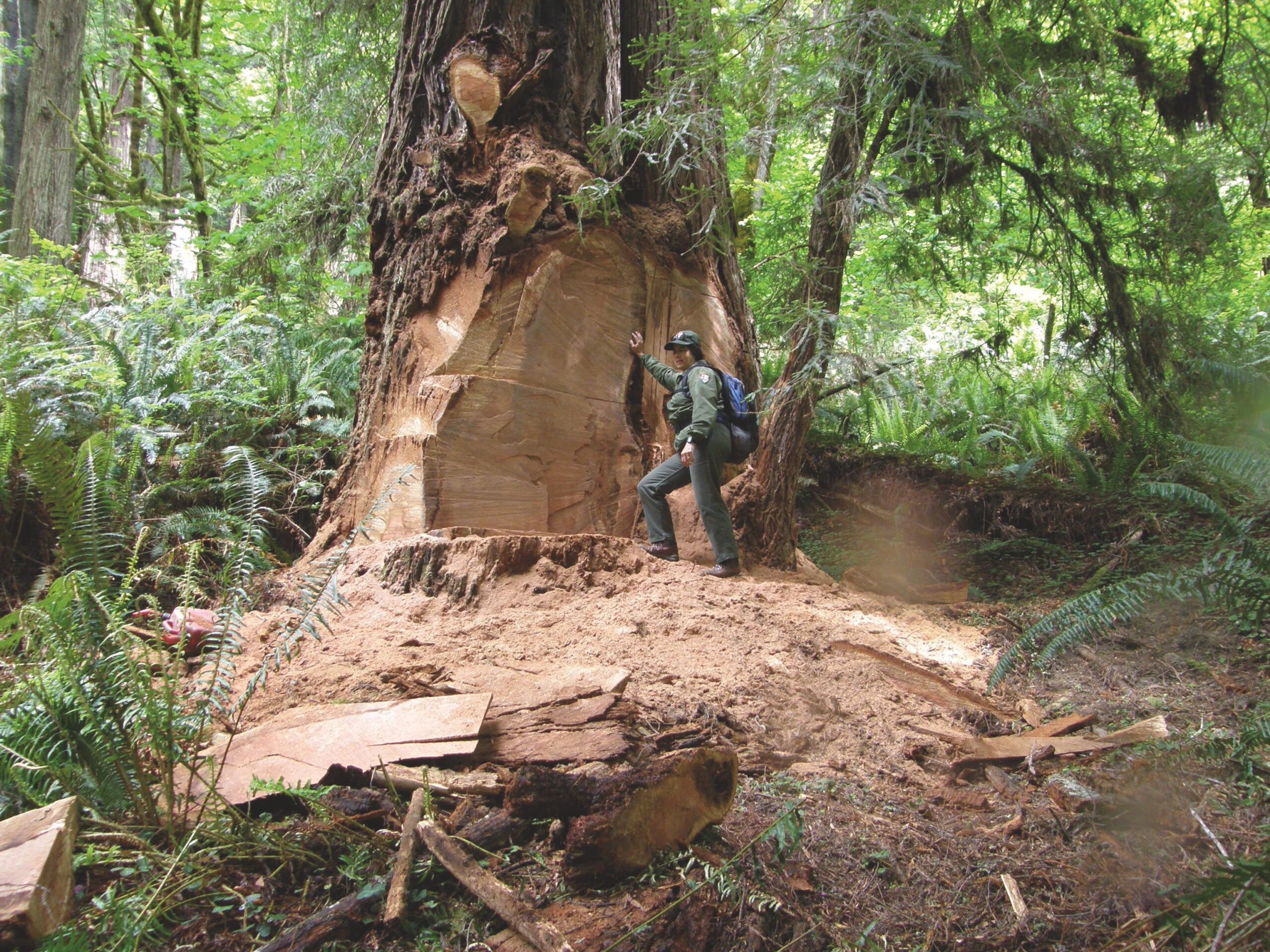The most visceral image in Tree Thieves: Crime and Survival in North America’s Woods, by Lyndsie Bourgon, is the description of the redwood burl.
Redwoods are the towering, rusty-fleshed evergreens that once thronged the California and Oregon coasts. Individuals of the species are capable of living for thousands of years, becoming the tallest and biggest trees on the planet. Since 2013, redwoods have been deemed globally endangered.
You may unsubscribe from any of our newsletters at any time.
Under stress, they make burls, which look like knotted scabs on their trunks and are stuffed with whorls of genetic material. Burls not only protect and heal a tree but also produce seedlings. They are, Bourgon writes, the redwoods’ “safeguard of genetic immortality.” And these forest wombs are routinely being poached from the imperilled redwoods that remain. Thieves chainsaw them out of living trees for the making of bowls or tabletops sold at roadside stands. Removing a burl both exposes the individual tree to infection and disease and threatens its ability to contribute to the future health of the forest.
The practice is an indelible metaphor for waste: this incomparable source of life being turned into tchotchkes. But it’s not just the waste that is so upsetting. It’s the unbearable poverty of the human imagination to track the consequences of our acts, all those unconsidered tentacles of the aftermath that will persist for generations.
But burls are just the beginning. Bourgon’s exceedingly fine book looks at the black market in trees from protected parks across North America and beyond, an industry worth as much as $157 billion a year, or nearly a third of the world’s wood trade. In the Amazon, an estimated 80 percent of the harvest is illegal, part of the terrifying damage to the rainforest that, last year, saw it spew carbon into the already laden atmosphere rather than act as a powerful sponge.
It’s easy to feel a deep outrage at the thieves, their nonchalance, the sense of entitlement that lets them take the burls and so much else, their refusal to examine the larger costs.
More on Broadview:
- Henri Nouwen’s friendship with a trapeze troupe deeply impacted his writing — and his spirit
- ‘Yellowjackets’ and ‘The Wilds’ reveal what castaway fictions get wrong
- ‘Shelterbelts’ explores how a rural Manitoba Mennonite community wrestles with change
Bourgon, who lives in a logging community in the interior of British Columbia where the closure of the local sawmill has thrust hundreds out of work, doesn’t take that route. Instead, she paints a far more nuanced canvas, roaming through history, politics and sociology. Why are poachers taking the trees? How did the powerful middle-class movement to save trees begin? How did that movement consider the needs of the people who once fed their families by cutting trees down? What did governments do to compensate them?
It’s a bracing read, inviting us to examine our own biases. Whether you cheer for the loggers or for the trees, you’ll have to take pause here and recalibrate.
And then there are the larger lessons. As the world lurches toward ending the fossil fuel industry, the tale of the burl thieves echoes. We have the chance now to orchestrate a tender transition for the people who feed their kids by working in the oil patch, or to leave them callously behind. I hope our imagination is rich enough to foresee those consequences — and to forestall them.
***
Alanna Mitchell is a journalist, author and playwright in Toronto.
This article first appeared in Broadview’s July/August 2022 issue with the title “Forest poachers.”













